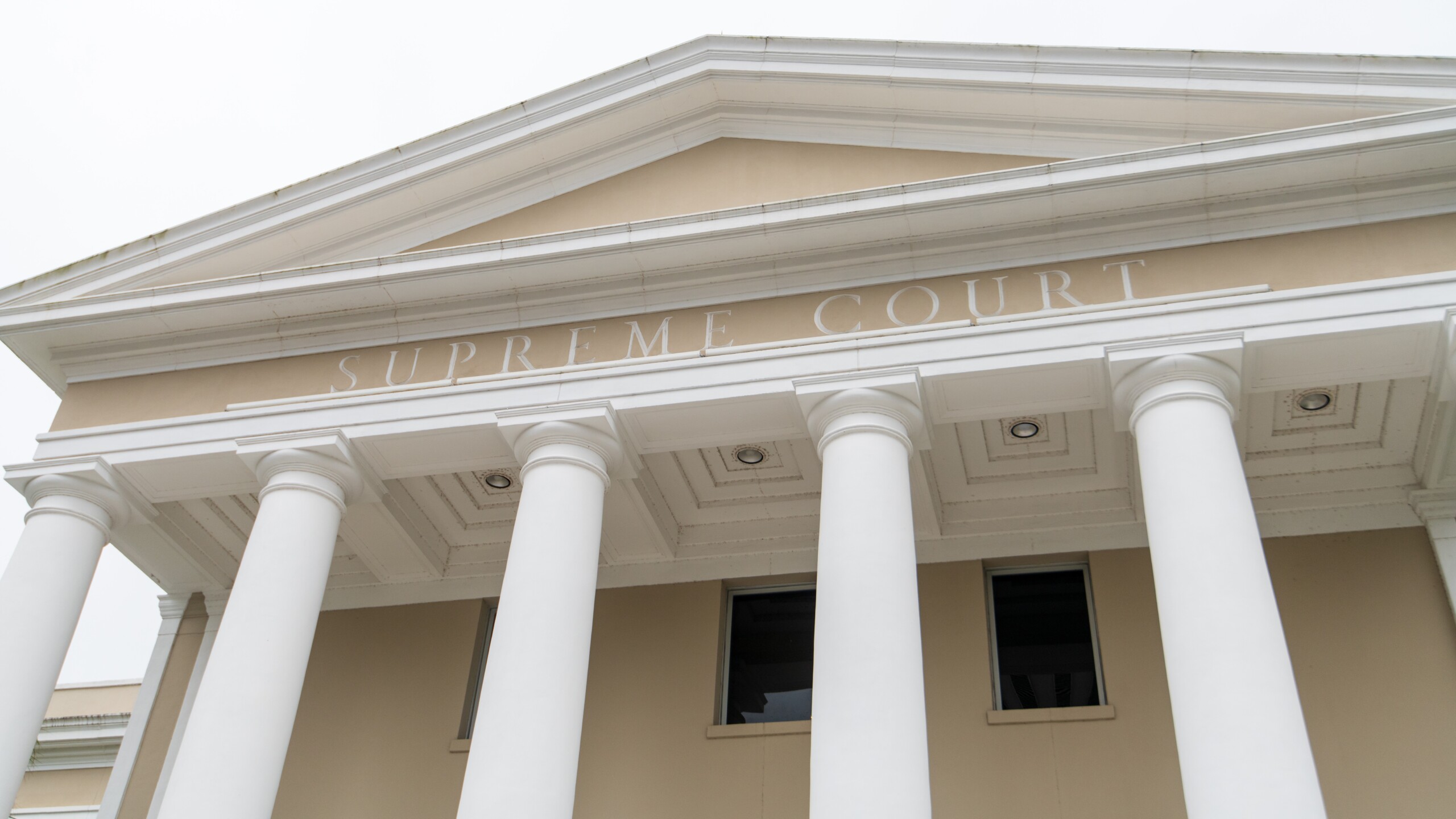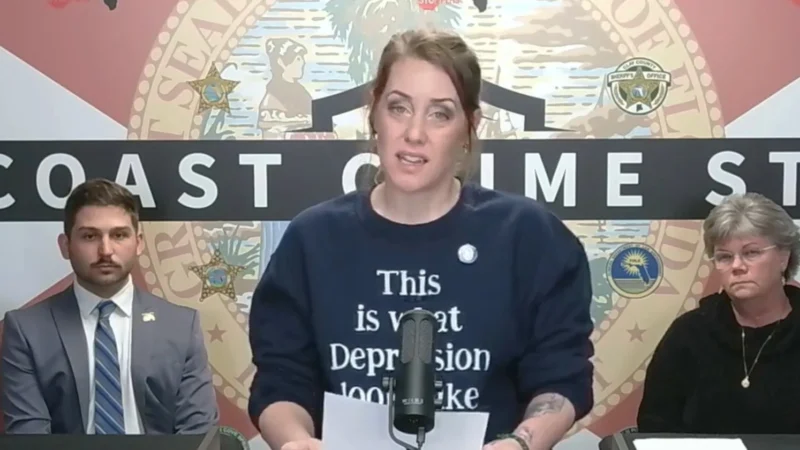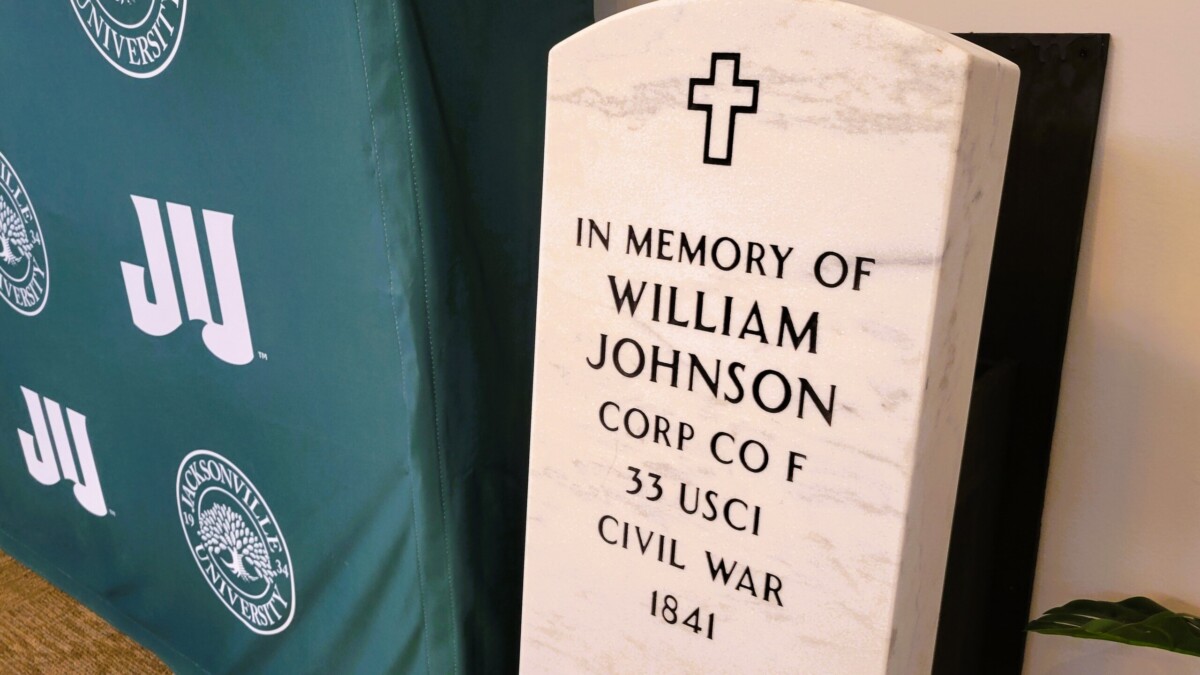A double murder in Jacksonville could become a pivotal case over whether Florida’s death penalty law is arbitrary.
Michael James Jackson was convicted of burying Reggie and Carol Sumner alive in 2005. Now groups are using his case to argue that the state’s law on death penalty cases is unconstitutional.
A 2023 law lowered the number of jurors needed to recommend execution, creating what the groups call a “quintessential game of chance” for inmates being resentenced.
The law allowed death sentences to be imposed based on the recommendations of eight of 12 jurors, an easier threshold than a previous requirement of unanimous jury recommendations. It gave Florida the lowest death penalty jury standard in the nation.
The change came after Parkland school shooter Nikolas Cruz received a life sentence after a jury did not unanimously recommend death.
Allowing 8-4 recommendations was the latest in a series of changes in the capital-sentencing process after a 2016 U.S. Supreme Court decision in a case known as Hurst v. Florida found the state’s process unconstitutional.
That ruling led the Florida Supreme Court to decide unanimous recommendations were required for death sentences, which the Legislature later enshrined in state law. Justices ordered resentencing for about 150 Death Row inmates who had been sentenced based on non-unanimous jury recommendations.
Amid the resentencings, however, a revamped Florida Supreme Court backed away from the unanimous requirement and paved the way for the 8-4 law, which took effect April 20, 2023.
Jackson is among about 40 Death Row inmates whose resentencings were pending when the 8-4 law went into effect. A jury voted 8-4 on May 25, 2023, to recommend execution for Jackson, and a judge issued a death sentence in August.
In a friend-of-the-court-brief filed last week in the Jackson case, a coalition of groups argued that the different death penalty standards have injected an unconstitutional haphazardness in the resentencing process in cases that were pending when the law changed.
The groups, including the Florida Association of Criminal Defense Lawyers, the Florida Public Defender Association, the Florida Justice Institute, Floridians for Alternatives to the Death Penalty and Conservatives Concerned About the Death Penalty, argued that the 8-4 requirement has been applied “based on chance.”
The resentencing standards hinged on “an arbitrary line-drawing based on the date” the sentencing was finalized, Melanie Kalmanson, an attorney with the Quarles & Brady LLP firm who frequently writes about the death penalty, wrote on behalf of the groups.
“Data on the Hurst resentencing proceedings show that whether a capital defendant was resentenced under Florida’s post-Hurst unanimity statute or the 8-4 statute is the quintessential game of chance,” the brief filed Thursday said.
Jackson’s case — the first direct Florida Supreme Court death penalty appeal under the 2023 law — also drew a brief Tuesday from groups and Black state lawmakers alleging the 8-4 law unconstitutionally violates equal protection rights of jurors and “silences Black voices.”
Groups signing onto Tuesday’s brief included the NAACP Florida State Conference and Equal Ground Education Fund, Inc., along with five Black state representatives and a former state senator, who are Democrats.
The 2023 law “disproportionately excludes Black jurors’ votes in capital sentencing,” Christopher Belelieu, an attorney with the Gibson, Dunn & Crutcher firm, wrote in the 29-page brief.
“Like systemic state systems of exclusion and racially tainted peremptory strikes, nonunanimous juries operate to exclude the voices of Black jurors, thereby depriving jurors of the equal protection of the laws guaranteed by the Fourteenth Amendment,” the brief said.
The law, “by design,” operates to “prevent up to a third of jurors from having their voices heard,” Belelieu wrote.
“A law that denies jurors the equal right to have their voices heard is patently unconstitutional, and undermines confidence and legitimacy in the judicial process,” the brief said.
Tuesday’s brief also said that jury non-unanimity “has historically been, and continues to function as, a method to disenfranchise Black jurors and to erase their votes in derogation of their constitutional rights.”
Such “racial bias … imperils the legitimacy of the entire judicial process,” Belelieu wrote.
As of March 31, only a fraction — 17% — of resentencings decided under the unanimity requirement had resulted in death sentences, according to the brief filed last week. While Jackson was sentenced after an 8-4 recommendation, a jury in January voted 9-3 to recommend death for inmate Bessman Okafor in an Orange County murder, but he will not be sentenced by a judge until June.
The court needs to “rectify the unconstitutional arbitrariness created by this new subset of cases,” Kalmanson wrote. The brief does not seek a ruling on the underlying constitutionality of the 8-4 law but asks the court to “level the playing field for those prisoners who were granted a new penalty phase after Hurst.”
The brief also maintained that disparity in the application of the death-sentencing standards violates constitutional protections against cruel and unusual punishment.
“The U.S. Supreme Court has made clear that this right includes protection against the arbitrary infliction of the death penalty,” Kalmanson wrote. “The procedural roulette that Florida’s Death Row prisoners have been forced to play since Hurst is the epitome of the arbitrariness the Eighth Amendment bars in capital punishment.”
The date a death sentence becomes final is dependent on several factors outside of the defendant’s control, the brief filed last week argued. The COVID-19 pandemic, natural disasters such as hurricanes and attorneys’ schedules can also slow the process.
Jackson’s case “illustrates this uncertainty,” Kamalson wrote. Jackson was considered the “mastermind” behind the deaths of Reggie and Carol Sumner, a pair of 61-year-olds who were buried alive after being kidnapped from their Jacksonville home. One of Jackson’s codefendants, Alan Wade, was resentenced to life in prison without parole under the unanimity law. Another codefendant, Tiffany Cole, was resentenced to life under the 8-4 requirement.
“Had Mr. Jackson’s resentencing proceeded just months earlier under the unanimity statute, he would have received a different sentence (like Mr. Wade did). Imposing sentences of death based on chance is the antithesis of the protections afforded by the Eighth Amendment and, likewise, article I, section 17, of the Florida Constitution,” Kalmanson argued, referring to part of the Florida Constitution that addresses cruel and unusual punishment.
As of Tuesday afternoon, the Supreme Court had not accepted either of the briefs.
Jackson’s case “particularly highlights the sheer arbitrariness of Florida’s death penalty,” Maria DeLiberato, executive director of Floridians for Alternatives to the Death Penalty, told The News Service of Florida on Tuesday.
“But for several random acts, including a hurricane, Mr. Jackson’s trial would have proceeded under unanimity,” DeLiberato, an attorney, said. “The Legislature’s 2023 law change, eliminating unanimity, has thrust Florida’s death penalty scheme into chaos. Mr. Jackson has a strong claim that his death sentence is not the product of a lawful, constitutional verdict, but instead is wholly arbitrary and unreliable.






